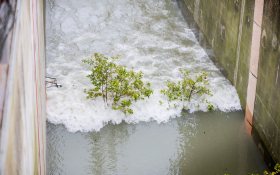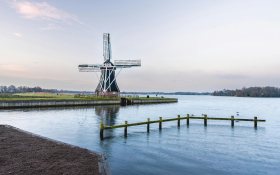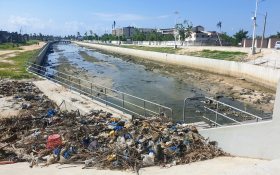China and World Wildlife Fund sign MoU on nature preservation Yangtze delta and Yellow river
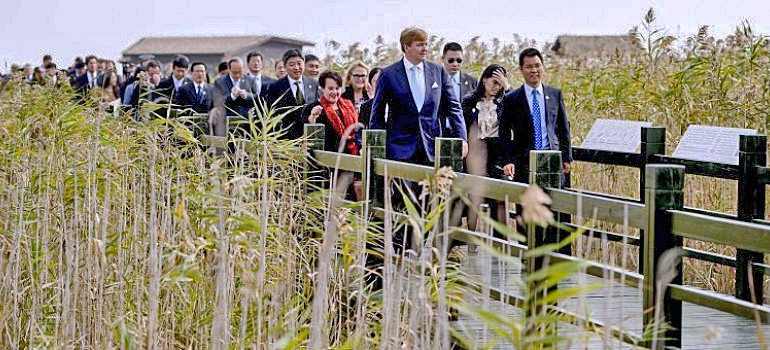
In the presence of Dutch king Willem-Alexander, the Chinese government signed an agreement with the World Wildlife Fund (WWF) on better coastal protection.
The signing was part of a visit by the Dutch king to Chongming Dongtan national nature reserve, near Shanghai on 28 October.
Network of bird hotspots
The agreement states that the Chinese government and the WWF together identify a network of bird hotspots, such as the Yangtze Delta and the mouth of the Yellow River.
The coming years these areas, vital for migratory birds, will be well protected and managed. There will also be awareness campaigns on the importance of wetlands and knowledge will be actively exchanged other delta countries like the Netherlands.
"The arrival of King Willem-Alexander has given an extra push and now we can get started," Esther Blom, head of freshwater programs at WWF said.
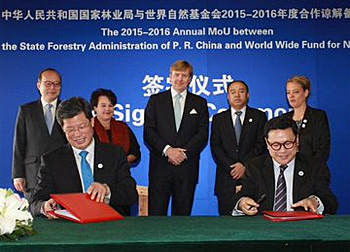 Signing of the MoU by the Chinese government and World Wildlife Fund in the presence of Dutch King Willem-Alexander (middle)
Signing of the MoU by the Chinese government and World Wildlife Fund in the presence of Dutch King Willem-Alexander (middle)
Fast disappearing wetlands
According to WWF better protection of wetlands along China's east coast is of great importance.
The coastal area is a buffer against flooding, filters polluted water and offers food and resting areas for large numbers of migratory birds and marine life. In addition, the coastal region employs millions of fishermen and farmers.
Since 2002, WWF supports a successful conservation project on Chongming island near Shanghai at the mouth of the Yangtze River, which now serves as an example for other regions.
It is also an important recreational area for people from the metropolis of Shanghai.
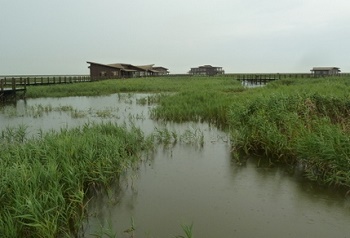 Dongtan national nature reserve on the isle of Chongming, near Shanghai.
Dongtan national nature reserve on the isle of Chongming, near Shanghai.
Royal bird spotting
During his visit the Dutch king spotted birds and attended a bird ringing demonstration.
The Chongming Dongtan Nature Reserve is subject of international research into habitats of migratory birds and biodiversity.
In the autumn Chongming is an important resting and feeding place for migratory birds on their way from Siberia to the south.
In this famous bird watching area are more than 250 species, ranging from cranes, small spoonbills to geese and duck species.
This news item was originqally published on the website of World Wildlife Fund (in Dutch only).
Read also on this website
● Urban development plan for Green Dragon Lake presented during Dutch state visit to China, 26 October 2015
● Dutch king Willem-Alexander: support climate resiliency small island developing states, 29 September 2015
● Agreement with NHRI gears up joint Sino-Dutch research on integrated water management, 2 June 2015
● Country: China
More information
World Wildlife Fund - the Netherlands
Zeist, the Netherlands
www.wfn.nl

